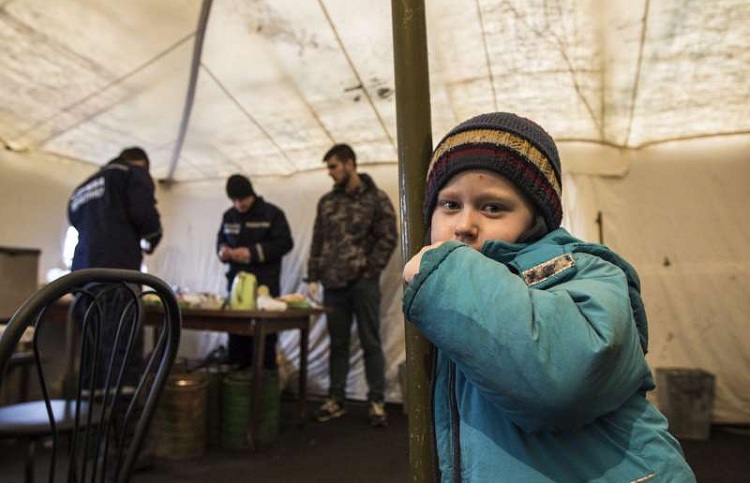The Diplomat
Half of Spaniards are in favour of the Atlantic Alliance intervening militarily to help Ukraine if Russia does not withdraw from the country and 70% are in favour of NATO providing arms to the Ukrainians to defend them from the invasion ordered by Vladimir Putin, according to the Barometer of the Centre for Sociological Research (CIS).
This is the first CIS survey after the outbreak of the war, a conflict that has slipped into the top ten of Spain’s main problems, and which worries 86.4% of the people interviewed. Specifically, 82.7% consider that the conflict concerns our country “a great deal or quite a lot”, and for 95.7% it also affects the European Union. 75.3% even see it as feasible that Russia will at some point invade other countries that were under the orbit of the USSR.
More than half of those interviewed confess that their opinion of Putin has worsened after the invasion of Ukraine; 30% now have a worse opinion of Russia, but 64% say they feel the same way about the country.
The Spanish government’s stance on the conflict has divided people: 29.7% agree very or somewhat, compared with 28.6% who disapprove. The European Union’s actions receive greater support -46.2% compared with 25%- while NATO’s actions are supported by 36.6% and criticised by 31.2%.
In this context, the CIS asks whether NATO should send arms to Ukraine to defend itself against the invasion, something that Spain and other countries are already doing, but outside the Atlantic Alliance. 70.9% are in favour of sending arms, but 21.1% do not agree with this. Moreover, 51.9 per cent would support NATO military intervention if Russia does not withdraw, compared to 35.4 per cent who reject it.
Military support for Ukraine has been criticised by Podemos. According to CIS data cross-checked with respondents’ voting memory, 25% of UP voters agree with NATO’s action in this conflict and half of them support sending arms to Ukraine through that organisation.
The CIS expressly asks about the economic consequences that this war will have for Spain. 94% believe that it will mainly affect fuel prices, 84.5% expect it to have an effect on the economy in general, and 82% predict that the price and supply of agricultural products will be affected.
Economic sanctions against Putin and Russia are widely supported in the survey (close to 90 per cent), although the percentage of those calling for continued international pressure to force Putin to stop the war is higher (93.7 per cent). There is also no doubt that humanitarian aid should be sent to Ukraine (97%) and that all EU countries should take in refugees (96.7%).
Regarding Ukraine’s entry into the EU, 84.7% advocate giving it the possibility, while 81% believe it has the right to join NATO.
The poll also includes a ranking of international leaders in terms of their actions in the Ukraine-Russia conflict. The best-ranked is Ukrainian President Volodymir Zelenki, with an average score of 7.37, and the worst, Putin, with 1.35, followed by Chinese President Xi Jinping, with 3.44. The second best-ranked is Ukrainian President Vladimir Putin, with 1.35, followed by Chinese President Xi Jinping, with 3.44.
The second best-placed is European Commission President Ursula von der Leyen, who scores 6.74, almost tied with France’s Emmanuel Macron, who scores 6.73. The EU’s High Representative for Foreign Policy, Josep Borrell, scored 6.41; German Chancellor Olaf Scholz, 6.32; US Chancellor Joe Biden, 5.42, and then Pedro Sánchez with 5.39.







